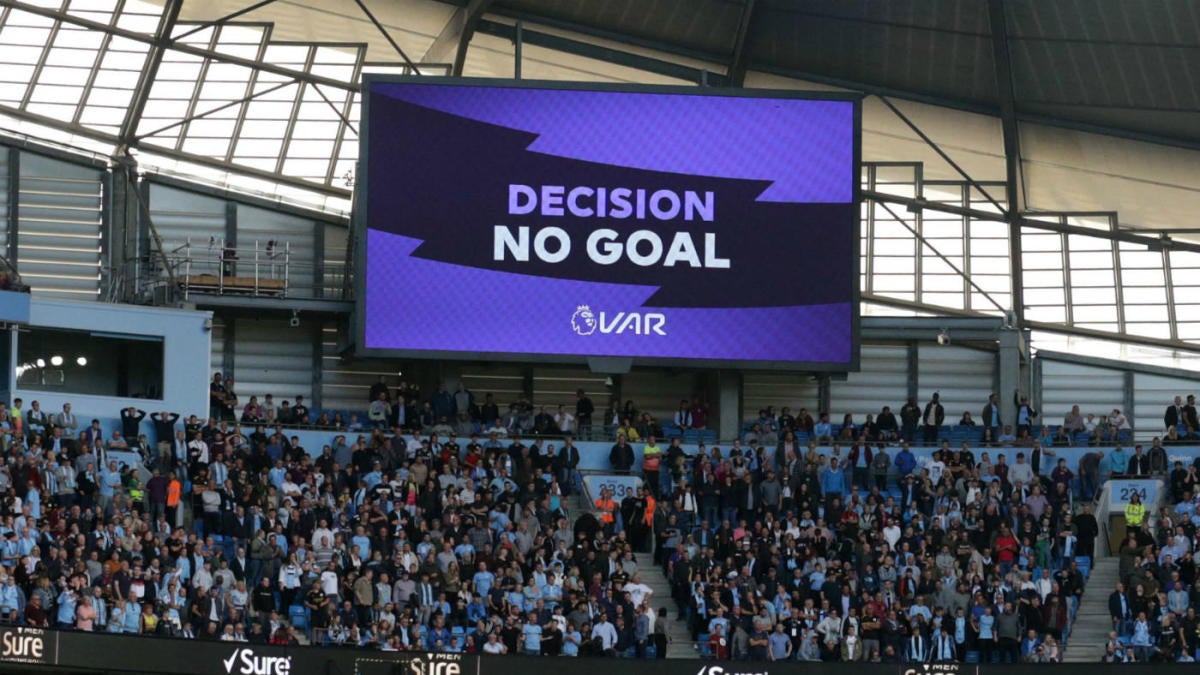What in the name of VAR

Your team is rock bottom of the premier league, about to go up against one of the best teams in the country and there is not an ounce of hope of beating them. It’s the middle of winter; you put on your favourite jersey and 3 more layers on top to keep off the cold. As you leave the house you put on a beanie, scarf and make the short trip to your home ground. You walk through the turnstiles to your seat and take in the pre-game activities. You rub your hands together to try and keep some feeling in them as the game begins. You know your team doesn't have much chance of winning, but there is hope.
You take an early 1-0 lead, but in the back of your mind, you know nothing at this point is for certain. The ball is around midfield when it gets played forward, more in hope than expectation. Your top striker runs onto the ball, chests it down and slots it past the goalkeeper. The stadium proceeds to erupt; you start high fiving everyone around you, an improbable 2-0 lead against one of the best teams in the league. The thought crosses your mind that this could turn the tide of your season. Suddenly the referee blows his whistle and indicates that he wants to check the goal with VAR. Here we go again. You wait with bated breath, looking up at the big screen to see the decision. The nightmare becomes reality as the words ‘NO GOAL’ scrawls across the screen. A replay is shown, showing that his armpit was offside. Clear and obvious? You don’t think so. The game continues and ends up finishing 2-2, another two points dropped and what could have been.
This was the unfortunate situation for Norwich City earlier in the season while playing Tottenham Hotspurs. An all too familiar occurrence since the introduction of VAR into the Premier League, which has left fans angrier about the state of officiating than before VAR was introduced.
Sadly the state of refereeing/umpiring in other major sports isn’t significantly better. We can all agree that being an official is a difficult role, not for the faint-hearted and without them, any organised sport wouldn’t go ahead. However, the standard of officiating leaves a lot to be desired, but you have to ask, are organisations doing enough to help their officials?
A study by Boston University in 2018 found that umpires made 34,294 incorrect ball and strike calls during the season, which was an average of 14 per game. A staggering amount, especially poor, as they also found out that the two worst umpires statically for that year (Ted Barrett and Joe West) were selected to officiate the World Series. In recent years there have been calls to introduce ‘Robo Umps’ removing the home plate umpire altogether or giving them a headset that relays calls to the umpire at home plate. This would change the landscape of the game, lowering the stress put on umpires that have to endure players screaming in their face when they strikeout.
VAR was also introduced to help officials with 'clear and obvious' errors. Within the Premier League, they are using the system on decisions that would be impossible to be seen with the naked eye. Often taking 5 minutes to check decisions, completely ruining the flow of the game in the process. The introduction of technology has been a step in the right direction for football, its use still comes under a huge amount of scrutiny. Officials at all levels of football are still sworn at incessantly during games. With no power to card players, these instances continue to add to the amount of stress that their job entails, it's about time that governing bodies gave officials the power to be able to defend themselves. Drastic changes also need to be introduced to the way VAR is used, they could take an example from rugby and how they use their video officials, but even then, rugby officiating has its own problems.
The world governing body for rugby released a statement during the 2019 world cup stating that the officiating had not been good enough. This was the first time the governing body has criticised the general standard of officiating across the board. The sport of rugby has always been renowned for its ability to officiate games. It would seem that even the gold standard for officiating isn't living up to the high standards they set themselves.
Maybe therein lies the problem. Do we expect too much, do we leave room for imperfection when it comes to match officials. Sepp Blatter former president of FIFA once said that using technology would only serve to damage the passion and emotion felt for sport, maybe he is partially correct, as much as it pains me to admit.
Comments
Post a Comment